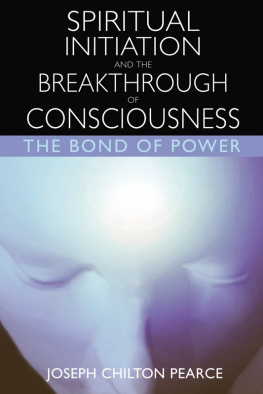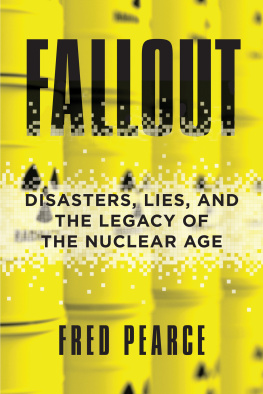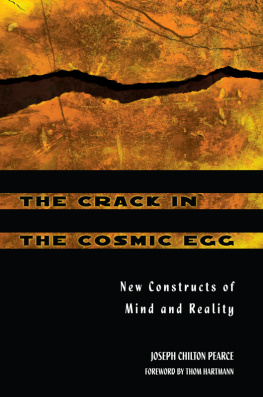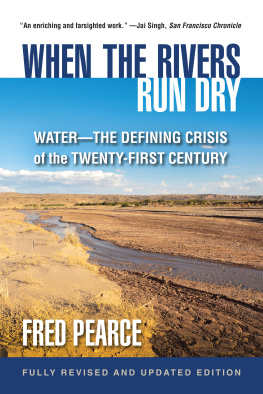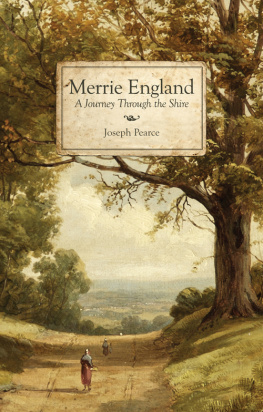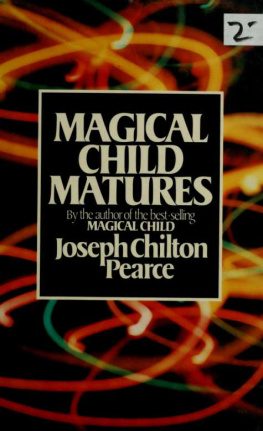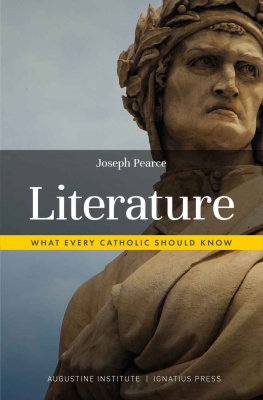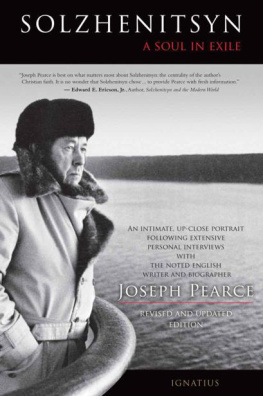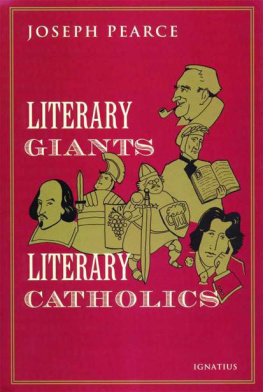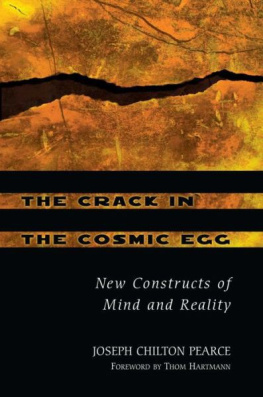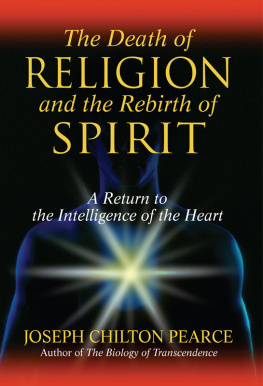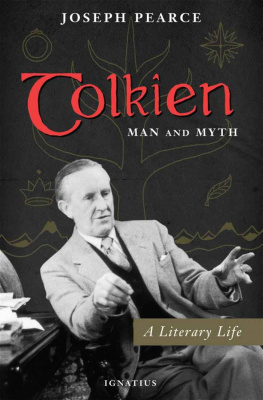SPIRITUAL INITIATION
AND THE
BREAKTHROUGH
OF
CONSCIOUSNESS
THE BOND OF POWER
JOSEPH CHILTON PEARCE

Park Street Press
Rochester, Vermont
To
Shelley Scott Mullenix
whose persistent letters
led the way
The force that through the green fuse drives the flower
Drives my green age; that blasts the roots of trees
Is my destroyer.
And I am dumb to tell the crooked rose
My youth is bent by the same wintry fever...
from
The Force That Through the Green Fuse Drives the Flower
DYLAN THOMAS
Taking the form of a bird,
He sings in the trees...
Through Him, the buried seed sprouts into a plant.
Through Him, the hair grows on your head...
Whatever you do, it is only through Him...
He is the source of all your actions...
from
Reflections of the Self
MUKTANANDA
Introduction
In some off-guard moment, a thought which illuminates new territory can explode in our heads and change the shape of our thinking and our lives. This postulate which arrives full-blown in the brain is a function of mind which holds the key to our nature, development, and fulfillment.
This phenomenon is rare. It comes as creative inspiration, scientific discovery, the Eureka!, the mystical revelation, the conversion experience. Its source has been a matter of debate. Trace the function to its source, though, and the mystery of our brain, mind, creation, and creator unfolds. The postulate is like a thread which, pulled from the woof and warp of our reality, unweaves that fabric and leaves us the threads from which reality itself is woven.
The problem with tracing the roots of creative insight is that thought, no matter its strength or brilliance, is not sufficient for the task. The postulate-revelation doesnt arrive in the brain as thought, but as the materials for thought. Thought is but a tool of the function and seems only peripherally (though vitally) involved.
Revelation is as valid a term as postulate, since new information seems revealed to our mind, rather than thought by it. The postulate seems to arise from some deep recess of mind, not brain. I will use the term insight hereafter, since it is a seeing from within, even when projected without.
For instance, Kekul, the famous chemist, saw a ring of snakes with their tails in their mouths, directly in front of him, for a historic instant. Translated into the language of his profession, that configuration gave us the benzene ring, basis of all modern chemistry (for good or ill).
Insight seems extracerebral, an intrusion into our awareness. It flashes into us always in some moment out of mind, never when we are busy thinking about the subject involved. The great mathematician, William Hamilton, received his insight into the Quaternion Theory while crossing the bridge into Dublin one morning. The solution arrived in that instant when thought of quaternions was the furthest thing from his mind.
Insight seems enormously powerful when it arrives. At times it breaks right through our thinking and ordinary perceptions. This power gives insight its numinous, mystical edge of awesomeness and conviction to its recipients. This power emboldens us to act on the revelation in spite of its novelty or improbable nature, and gives us the strength to carry it into the common domain against odds.
Insight seems a grace, that which is given freely rather than made by our effort. Einstein spoke of his insights arriving like flashes of lightning which, though they lit up the landscape of his mind for only an instant, forever after changed its shape. The only thing which can change the nature of our thought is an energy more powerful than that thought. So there are different modes of mental experience and the difference lies in the levels of energy involved.
Ordinary thinking, our everyday roof-brain chatter, is a weak-energy emergent of our brain, while insight is surely more powerful. That is why the insight function isnt reversible, to be repeated by formula. Our ordinary thinking can (must) prepare for insight, respond to it, but cant manufacture it. A weak thought cant produce a stronger one, but it can attract it.
Nothing that we can do will insure the arrival of insight, yet insight comes to us only when we are passionately involved in the subject matter concerned, and have thoroughly prepared for its coming. Kekul, for instance, had passionately sought for the secret of the benzene ring. Hamilton had spent fifteen years searching for the mathematical key to the quaternions before his bridge-revelation. Einstein, as a young man, had set out with a passion to find some unity of time, space, and matter.
William Blake said Mechanical excellence is the vehicle for genius. Genius is our personal realm of insight. Insight is the grace given, the stuff of genius, but a grace had at the price of passion, unbending intent, will, hard work, and tenacity.
In his mature years, Mozarts mechanical excellence was so perfected that his genius could speak as direct insight. He would receive a commission for a new symphony and the work was quite likely to fall into his head as a gestalt, arrive full-blown in his brain, twenty minutes of music in an instant out of time. He then had the arduous task of translating that moment out of mind into the myriad of notes which could, in turn, be translated by others to make the symphony sound in the actual world.
A pianist friend of mine was preparing to play his favorite Mozart sonata in concert one evening. He leaned back to immerse himself in the nature of that work, and experienced the entire sonata as a single round volume of sound. Every note, phrase, and nuance was there, perfect and complete in that instant out of time. The experience was numinous, of a religious, mystical tinge, and had a profound effect on my friend. He had, perhaps, shared the sonatas original nature as insight-revelation.
The task of translating insight often proves as great as the work necessary to bring it about. Hamilton spent fifteen years on the quaternions after his insight. Kekuls translation bridging the symbolism of a ring of snakes to the hard data of chemistry was not simple, nor was Einsteins final neat equation spelled out in that original lightning bolt.
Back in 1958, I had a minor insight which followed, in my own minor way, the classical pattern of all insight. My insight was, in effect, a glimpse into the mechanics of insight itself. Being of a slow mind (and with four children to raise), it took me some twelve years to finish a translation. The end-result was my book The Crack in the Cosmic Egg. In that book I outlined a fourfold procedure found in any creative venture, discovery, or transformation experience resuiting in insight. Since that formula of creativity is a way to trace insight to its roots, I will summarize it here:
First, to entice insight into our lives, we must be caught up in some passionate quest. (No dilettantes here.) A certain intensity of purpose must be generated which finally swamps our switchboard, absorbs all our attention, rules out our lesser goals and passions. Then we must work for that mechanical excellence which alone can serve as the vehicle of our genius. We must gather the materials related to, and develop the abilities needed by, our quest. If an artist, we must perfect the mechanics of our art; as a scientist we must thoroughly search the area of our interest; as philosophers we must gather all possible pertinent knowledge; as spiritual seekers we must immerse ourselves completely in our chosen path. The half-hearted endeavor will leave us with only our weak thought and vain imaginings.
Next page
